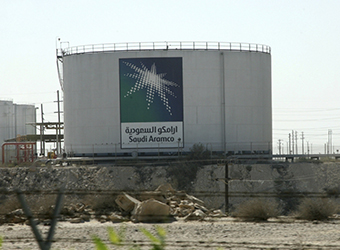Saudi Arabian state oil company Aramco will resume oil product shipments to Egypt some six months after halting them suddenly, the Egyptian Petroleum Ministry announced Wednesday, signalling a potential thaw in relations after months of tension.
The ministry said in a statement that it was working with Aramco on a timetable for the resumption of shipments and that the reasons behind the October cut-off were purely commercial.
“It was agreed that the Saudi Arabian side would resume Aramco’s shipping of oil products as per the commercial contract signed between the Egyptian General Petroleum Corporation and Aramco,” the statement said.
Saudi Aramco could not be reached for immediate comment.
“Very shortly we will finalise the time and place for receiving shipments from Aramco,” a ministry official told Reuters, asking not to be identified because he is not authorised to speak to the media.
Asked if shipments would resume within weeks, the official said: “No, no, we are talking about a very short time period.”
Saudi Arabia agreed in April last year to provide Egypt with 700,000 tonnes of refined oil products a month for five years, but the cargoes stopped arriving in early October.
Aramco did not provide official reasons for the halt.
“According to Aramco, the postponement of shipments was due to commercial conditions on its part amidst changes in global oil market prices and Saudi Arabia’s reduced oil production levels, as well as routine maintenance to refineries,” the Egyptian Petroleum Ministry’s statement said.
Though officials from both sides have denied the existence of tensions or disagreements between the North African nation and the Arab world’s most populous and richest state, the two countries have been at odds on a number of political issues.
Egypt voted in favour of a Russian-backed but Saudi-opposed U.N. resolution on Syria in October, which excluded calls to stop bombing Aleppo. Then in January an Egyptian court rejected a government plan to transfer two uninhabited Red Sea islands to Saudi Arabia
“Politically it is a very positive step,” Pharos Holding energy analyst Karim Ezzat said of the resumption of oil product shipments.
“It’s not the nominal amount that you get as such, but really the investments, the backing, the political backing, that is the more important side.”
Egypt had turned to the spot market in recent months but also sought similar deals to make up the shortfall. Crude oil from Iraq is expected to arrive in late March as part of an agreement for 1 million barrels a month.
Still, said Ezzat, the Aramco deal which includes a low 2 percent interest rate to be repaid over 15 years, was difficult to match at a time of low oil prices and fiscal belt-tightening.
Source: Reuters


